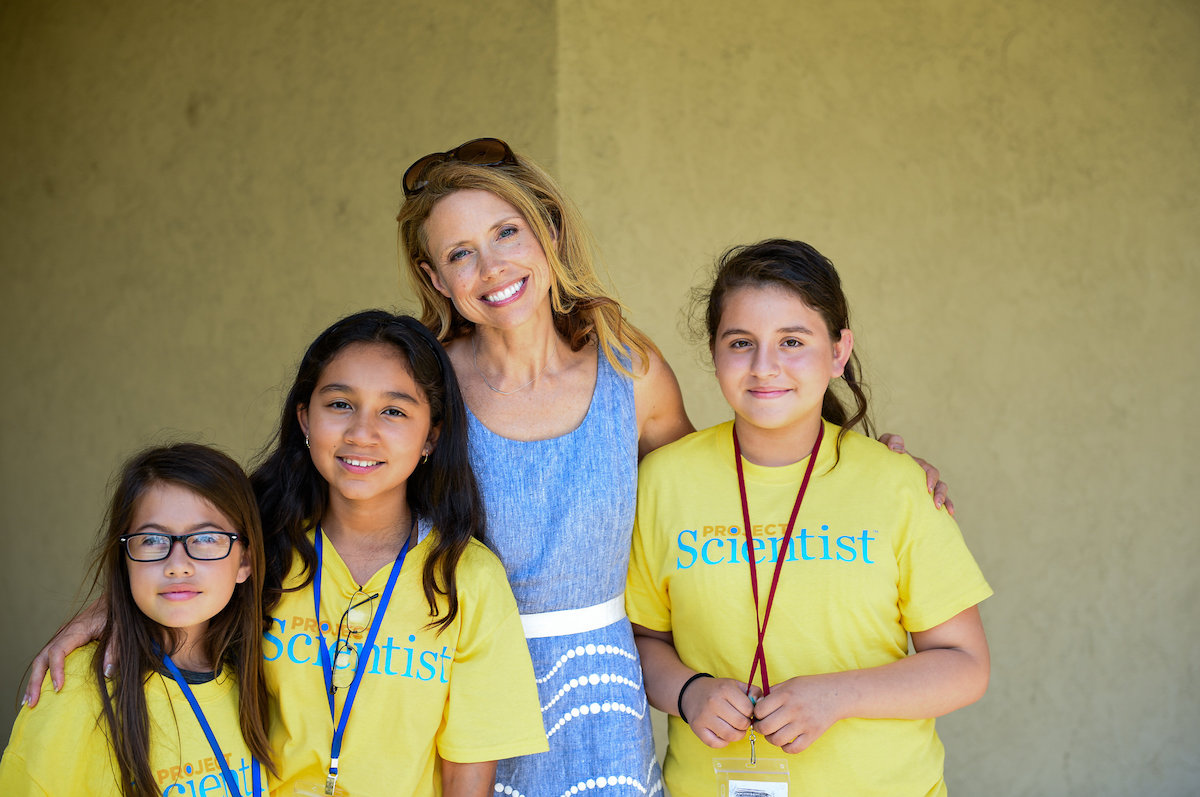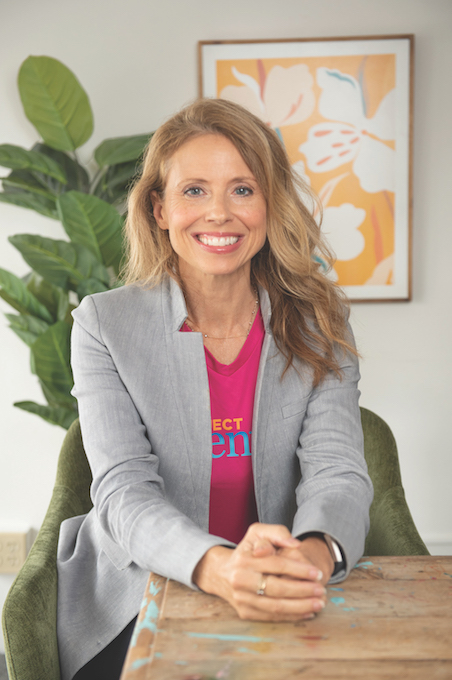
The leader of local nonprofit Project Scientist offers programs that encourage girls to get involved in fields related to math and science.
By Sharon Stello
Back in 2011, Sandy Marshall wanted to introduce her then-4-year-old daughter, Ellie, to the world of science and, hopefully, spark her interest in the subject. But, when she couldn’t find any science programs for young girls, Marshall started her own.
“We began with six girls in our backyard,” Marshall says. “When NASA agreed to have their female leaders Skype with our girls, I realized we had the makings of something special.”
The program grew from there, taking on a life of its own. Now called Project Scientist, the nonprofit has served 20,000 girls in 26 states across the country. The organization’s summer STEM Lab and after-school STEM clubs take a hands-on approach to science, technology, engineering and math, reaching girls ranging in age from 4 to 12.
Virtual, in-person and hybrid options are available with programs built around engaging themes from climate change to brain science. For hybrid sessions, credentialed teachers lead experiments virtually in real time while trained, in-person facilitators at schools or community centers assist students on-site with provided laboratory kits.
Online and in-person visits are also arranged with female STEM role models, as well as live or virtual expeditions to STEM companies and universities such as Google and 3M.
Marshall, a Laguna Beach resident and the founder and CEO of Project Scientist, has made it a goal to get girls fired up about science.
“I’m passionate about reaching girls as young as 4 years old, before societal norms tell them STEM isn’t for them,” she says. “With girls that young, you’re really just trying to pique their curiosity through affordable, high-quality programming that uses play to encourage learning. … They see the relevance of STEM in their own lives and in their communities and feel empowered to make an impact.”
Earlier this year, Project Scientist announced it was awarded a $1 million grant from Trane Technologies, which will allow the nonprofit to add a new mentoring program and expand its offerings into Mexico. The virtual pilot program, to be taught in Spanish, will be Project Scientist’s first international initiative. To request Project Scientist at your school or donate to the program, visit projectscientist.org.
Below, Marshall shares what inspires her and some of her favorite local places. Marshall and her husband, Kinnon (who grew up in Laguna), live in town with their daughters, Ivy, 11, and Ellie, 16; their dog, Kona; cats Bean and Bob; and a chicken named Sonny.

What do you like about living in Laguna Beach?
Sandy Marshall: The weather. I grew up in Minnesota. As soon as I graduated [from] high school, I moved to California. As much as I love visiting Minnesota, I do not like the winters. I love the sun and beach here.
Any go-to places in town?
SM: One of my favorite places to eat is Active Culture. They have a Wholesome Bowl with OG sauce—it’s like a secret recipe. It’s your typical healthy, vegetarian, Southern California sort of thing.
How do you feel about Project Scientist receiving the $1 million grant?
SM: We couldn’t be more excited. … Their investment in our expansion to Mexico is important for multiple [reasons]. … More than 25% of the girls we serve currently are from Spanish-speaking households. Trane’s support allows us to create Spanish-speaking programs domestically to serve those families. The need is even greater in Mexico, as it’s rare for Mexican women to hold STEM jobs. … [And] for girls in the U.S., some of their families are from Mexico. They can meet women in Mexico working at U.S.-based companies. The girls can see women who look like them in their home country.
What inspires you?
SM: I was just visiting our summer program in St. Paul, Minnesota. It was astounding to meet this group of 35 girls from Saint Paul Public Schools, who were just so grateful for the program. They inspire me. … It’s a joy to see girls are spending their summer engineering projects, working together [and] meeting women in STEM. … Many may have had a limited idea before of what the future could hold for them. But, after our program, it’s just blown up their world to all the possibilities.
